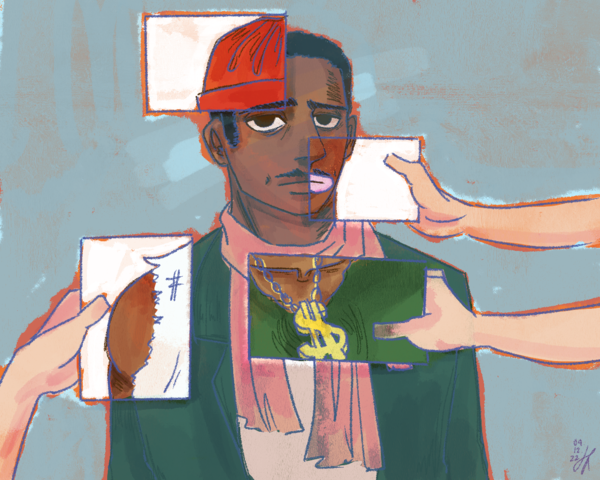Okay, so here it goes — my last article for this publication. It’s really weird for me to think that I’ve been part of The KAIST Herald for four years now. Over those four years, I’m happy I got the chance to make some friends along the way. I’m thankful that I got to write about some of the things I cared about. But this is my final piece. I was planning to write this article for quite some time, but I was never fully convinced it was the right time, nor was I ready to share my experience as a black man in Korea. However, I hope this will be a fitting final bow.

I remember my first ever Halloween party in Korea. It was only a few months after I moved here, a time that feels like it’s in the distant past. A party was organized for international students at a nearby pub, Santa Claus. It wasn’t long after I got to the party that I had one of the most — for the lack of a better word — “interesting” experiences. One of my classmates, inviting me over to his friends, introduced me as: “This is Berhane, he is from Africa.” I mean, by all means that sentence is entirely true. Yes, I am Berhane. Yes, I am African. But, I couldn’t help but feel a certain unease with his full-fledged conviction of introducing me as such. I hadn’t lived outside of my country before, and so I never realized the extent to which people tend to bundle up 50+ countries under a single label. This might not be a big deal for some. But in that specific moment I was definitely not pleased; the introduction came with nuances that reduce an individual like me to a set of misinformed stereotypical labels.
Here’s another experience. Just a few weeks back, I was at a bar with friends when a “friendly” stranger approached, started a conversation, and was kind enough to pour me a drink. It was a nice interaction — well, nice until not even two minutes in he cornily asked, “Can I call you Ni***?” ever so politely. And to be honest, I wasn’t surprised by that.
Here’s the thing, from personal experience and all, what I’ve come to realize is that there are two typical stereotypes an average black man experiences in Korea. This is probably because, beyond clichés and stereotypes, there is not much else in Korean media. The first is the idea of poverty propagated through an unbelievable amount of poverty porn. The second is the “cool and hip” idea which came from the mainstreaming of hip-hop, something that is noticeable in the night-life scene. These preconceived ideas place black people into certain boxes. Mostly, it’s one or the other. People usually assume you to have been from a certain background, have a certain set of beliefs, act a certain way and have a certain backstory, and they find it difficult to accept that you deviate from those beliefs. So it’s not uncommon to be in situations where people don’t see you for the individual you are but rather have shallow and surface level interactions where they don’t look past the color of your skin. And for some people I became acquainted with, they have gone as far as to ask me if they can have what they referred to as the “n-word pass”. I did not grow up in the US and so maybe I haven’t fully experienced the nuances and historical depth of that word, but I know enough to realize that asking to have a “pass” is just plain weird and cringe. I don’t even use that word, and quite frankly, I feel like that’s an indication of whether they are looking for a friend or a “black friend”.
The fact of the matter is that bias is everywhere around the world. And in terms of how we treat each other, we as a global society are so far behind compared to where we are in the course of human civilization. However, in this modern information age where the world is more connected than it has ever been, is it even acceptable to have racist or xenophobic tendencies? Maybe I am wrong, but it doesn’t take much effort to at least try to be open to experiences we’re not familiar with. We might even learn a thing or two. I have some very close friends here who I really value — what I’ve noticed is that they either have lived abroad and know what it feels like to live as a foreigner or they make conscious attempts to understand people and make friends across borders. And I feel like more and more people are very slowly but surely going in that direction. Being a foreigner in Korea is hard; being a black man in Korea is harder. Nonetheless, I am hopeful that racism and xenophobia will be non-issues someday in the future.

